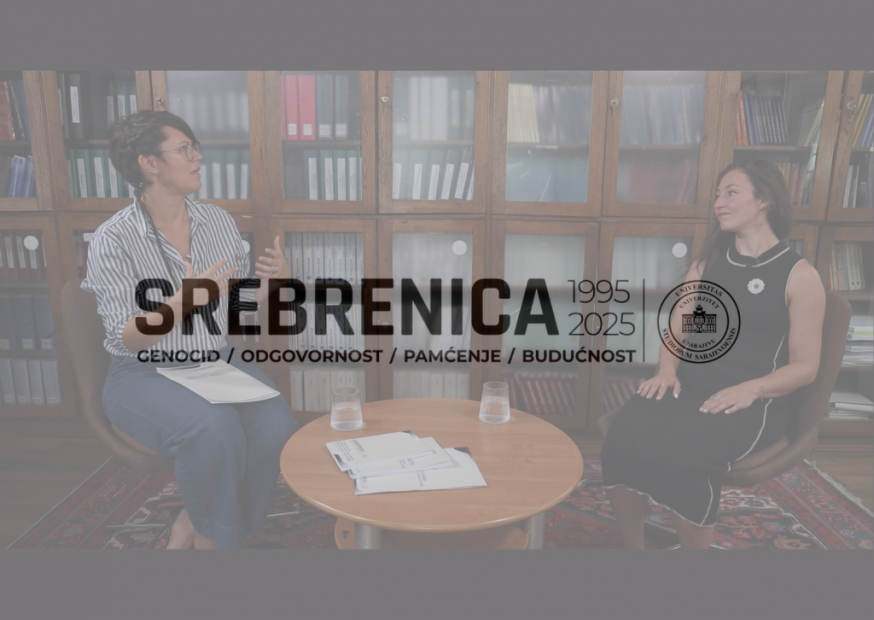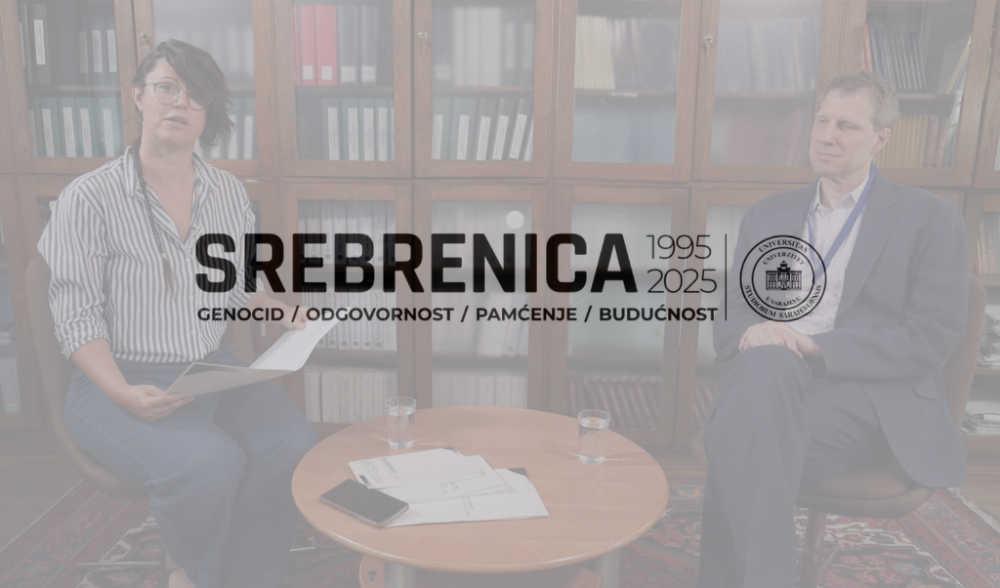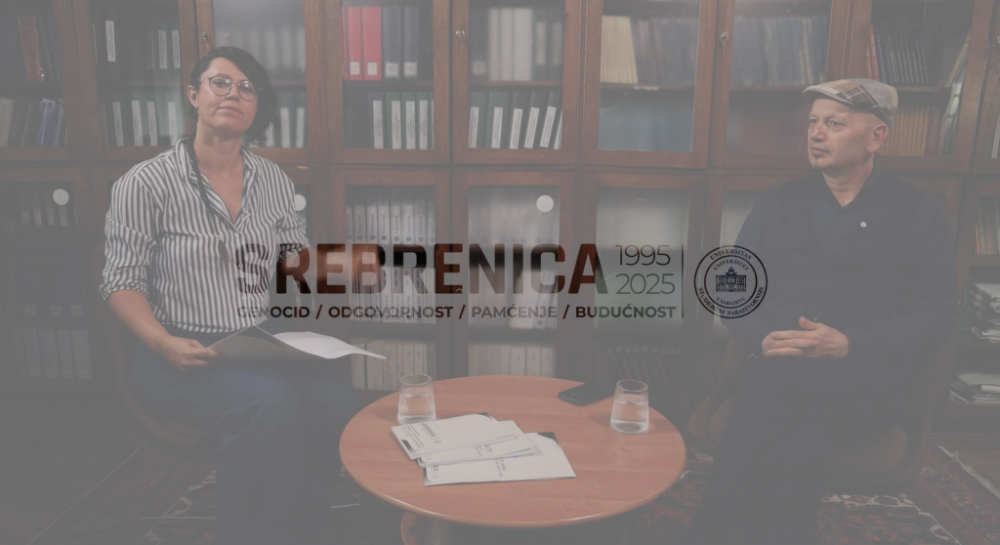

konferencija

Srebrenica 30 godina poslije genocida: Sjećanje, odgovornost i izazovi negiranja
pogledaj detalje
1-3
juli
KALENDAR
Kalendar
SVI DOGAĐAJI
No items found.
novosti
Vijesti
SVE NOVOSTI

UNSAJDER | Odgovornost za budućnost | Ep03 | Niké Wentholt
Nakon Međunarodne naučne konferencije „Srebrenica 30 godina poslije genocida: Sjećanje, odgovornost i izazovi negiranja“, Univerzitet u Sarajevu producirao je podcast posvećen obilježavanju 30. godišnjice genocida u i oko Srebrenice. Kroz šest epizoda ovog podcasta razgovaramo sa uglednim naučnicima i istraživačima koji su bili učesnici Konferencije.

UNSAJDER | Odgovornost za budućnost | Ep02 | David J. Simon
Nakon Međunarodne naučne konferencije „Srebrenica 30 godina poslije genocida: Sjećanje, odgovornost i izazovi negiranja“, Univerzitet u Sarajevu producirao je podcast posvećen obilježavanju 30. godišnjice genocida u i oko Srebrenice. Kroz šest epizoda ovog podcasta razgovaramo sa uglednim naučnicima i istraživačima koji su bili učesnici Konferencije.U drugoj epizodi, Tina Kalinić, viša asistentica na Akademiji scenskih umjetnosti Univerziteta u Sarajevu, ugostila je Davida J. Simona.

UNSAJDER | Odgovornost za budućnost | Ep01 | Prof. dr. Hariz Halilovich – Glas o neizrecivom: Svjedočanstva o genocidu u Srebrenici
Nakon Međunarodne naučne konferencije „Srebrenica 30 godina poslije genocida: Sjećanje, odgovornost i izazovi negiranja“, Univerzitet u Sarajevu producirao je podcast posvećen obilježavanju 30. godišnjice genocida u i oko Srebrenice. Kroz šest epizoda ovog podcasta razgovaramo sa uglednim naučnicima i istraživačima koji su bili učesnici Konferencije.

Na Univerzitetu u Sarajevu održana radionica „Negiranje genocida: historija, taktike i odgovori“
U Rektoratu Univerziteta u Sarajevu održana je radionica kao rezultat međunarodne saradnje Instituta za istraživanje zločina protiv čovječnosti i međunarodnog prava Univerziteta u Sarajevu, Studentskog parlamenta UNSA i Genocide Studies Programa Yale Univerziteta.
o nama

Genocid koji je počinjen nad Bošnjacima u i oko Srebrenice u julu 1995. godine, predstavlja jedno od najtragičnijih poglavlja u historiji Bosne i Hercegovine. Ubijena su najmanje 8.372 bošnjačka muškarca i dječaka, a obilježavanje 30. godišnjice genocida daje priliku da se ponovo izgrade sjećanja na žrtve, osude izvršeni zločini i ukaže na važnost pravde i izgradnje mira na temeljima istine. Ipak, danas bez obzira na izmjene Krivičnog zakona Bosne i Hercegovine, na usvojenu Rezoluciju pred Organizacijom Ujedinjenih nacija o genocidu u i oko Srebrenice – genocid se negira na lokalnom, regionalnom i globalnom nivou. Sve su to razlozi da se kroz akademski diskurs problematiziraju navedena pitanja, vode argumentirane i naučno utemeljene i relevantne diskusije i daju preporuke za dalje djelovanje. Pitanje genocida počinjenog nad Bošnjacima u Republici Bosni i Hercegovini i u i oko Srebrenice pitanje je svijesti i savjesti cjelokupnog čovječanstva.


Cilj projekta Srebrenica30, koji se sastoji od nekoliko glavnih segmenata , jeste obilježavanje trideset godina od genocida uz angažiranje globalne akademske zajednice i šire međunarodne javnosti u podizanju svijesti o genocidu počinjenom na evropskom tlu prije tri decenije, kao i adresiranje tema njegovog negiranja i veličanja. Ove pojave predstavljaju izuzetno zabrinjavajući fenomen, ne samo zbog univerzalnih moralnih vrijednosti dobra i zla i odnosa čovječanstva prema počinjenim masovnim zločinima s namjerom istrebljenja, već i zbog određenih političkih aspiracija i pozadina koje podrivaju sigurnost i kredibilitet međunarodnih sudova pravde, svjetskih agencija, instituta i istraživača.

podrška
Partneri
















.png)


.png)





